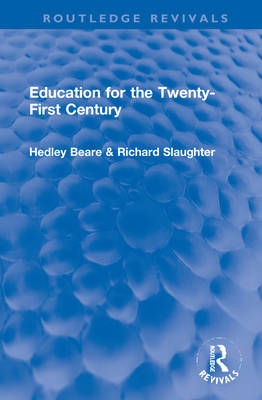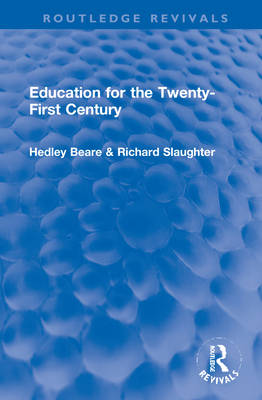
- Retrait gratuit dans votre magasin Club
- 7.000.000 titres dans notre catalogue
- Payer en toute sécurité
- Toujours un magasin près de chez vous
- Retrait gratuit dans votre magasin Club
- 7.000.0000 titres dans notre catalogue
- Payer en toute sécurité
- Toujours un magasin près de chez vous
Description
First published in 1993, Education for the Twenty-First Century grew out of a common and deep-seated concern about the way young people think of their own future, and about some of the relatively simplistic education reforms advocated, often by people with scant comprehension of modern educational practices. Schools as institutions, schooling patterns, the curriculum and teachers themselves have come under heavy criticism, but it has to be recognized that the problems in education have no lasting or satisfactory solutions while schools continue to operate out of the framework which has determined their raison d'être for the past two hundred years. The authors argue that schools do not need fine tuning, or more of the same; rather some of the fundamental assumptions about schooling have to be revised. They argue that learning about the future must become very much a part of the present, and they set out in the book some of the thinking and several techniques which permit us to confront the future and make it a more friendly place. The book will be of interest to students, teachers and policymakers.
Spécifications
Parties prenantes
- Auteur(s) :
- Editeur:
Contenu
- Nombre de pages :
- 194
- Langue:
- Anglais
- Collection :
Caractéristiques
- EAN:
- 9781032196398
- Date de parution :
- 17-12-21
- Format:
- Livre relié
- Format numérique:
- Genaaid
- Dimensions :
- 156 mm x 234 mm
- Poids :
- 453 g

Les avis
Nous publions uniquement les avis qui respectent les conditions requises. Consultez nos conditions pour les avis.






